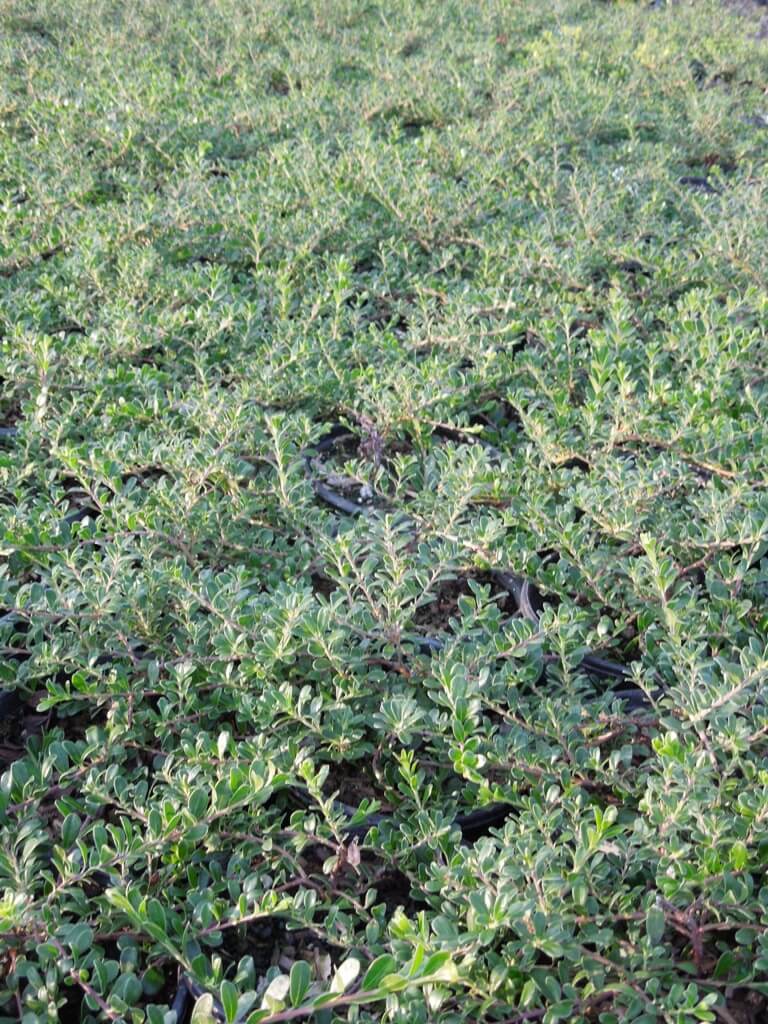
Boething Treeland Farms grows over 1,000 varieties of trees, shrubs, perennials and specialty plants on 10 California nurseries to serve the wholesale landscape and nursery industries throughout the Western United States and beyond.
Plant Type: Ground Covers / Shrubs
Evergreen-Deciduous: Evergreen
Overall Mature Size: Small
Also Grown As: Bush
Mature Height & Spread: 1' x 10-15'
Natural Growth Habit: Spreading
Native To: USA
Exposure: Full Sun, Partial Shade
Water: Medium Water, Low Water
Flower Color: Pink / White
Bloom Time: Summer
Special Features: Attractive Bark / Attracts Birds/Butterflies / Cold Hardy / Deer Resistant / Drought Resistant / Intermountain Conditions
Container Sizes: #1
Sunset Garden Zones: A1-A3, 1-9, 14-24
Several varieties of Arctostaphylos uva-ursi are popular groundcovers and ‘Massachusetts’ is no exception, for good reason. The small leaves give the overall appearance a fine texture and it hugs the ground so well it cascades over vertical surfaces, creating a waterfall like shape. ‘Massachusetts’ is not a very quick grower but it is sturdy, disease resistant, and a profuse bloomer. All it needs are sandy soil with a low ph, and full sun. ‘Massachusetts’ is more capable of handling cold winters than some other varieties of A. uva-ursi. Once established, this Arctostaphylos thrives with just a little water in temperate climes, and very much prefers not to be fertilized.
Several varieties of Arctostaphylos uva-ursi are popular groundcovers and ‘Massachusetts’ is no exception, for good reason. The small leaves give the overall appearance a fine texture and it hugs the ground so well it cascades over vertical surfaces, creating a waterfall like shape. ‘Massachusetts’ is not a very quick grower but it is sturdy, disease resistant, and a profuse bloomer. All it needs are sandy soil with a low ph, and full sun. ‘Massachusetts’ is more capable of handling cold winters than some other varieties of A. uva-ursi. Once established, this Arctostaphylos thrives with just a little water in temperate climes, and very much prefers not to be fertilized.